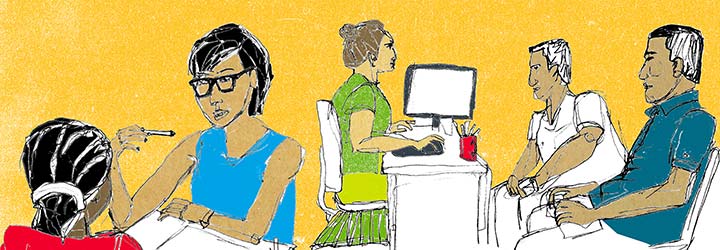Access to justice in displacement

When armed conflict, riots, natural disaster or targeted mistreatment force people from their homes, the last thing on anyone’s mind is calling a lawyer. However, lawyers (and legal systems) provide vital, though understudied, support to displaced persons in rebuilding their lives. Reconnecting displaced persons with their entitlements and rights is crucial for them to construct independent, dignified lives in their new location.
The Access to Justice in Displacement (A2JD) project seeks to build an international coalition of practitioners and academics to launch an international, participatory collaboration to develop better legal interventions in jurisdictions, particularly in the Middle East and Asia, where such interventions have been largely overlooked.
COVID-19 and government responses to it have had devastating effects on migrants and refugees around the world. Migrants and refugees can't go to work, can't access benefits, are particularly vulnerable in overcrowded immigration detention centres and prisons, already live in overcrowded accommodation, are further impoverished (some going hungry), fear seeking (or are excluded from) medical care in case they are arrested, no longer have access to schools, and so forth.
COVID-19 will also affect civil society groups and organisations that work with migrants and refugees: service centres, food banks and schools have been closed. Although it is often said that the virus does not discriminate, the existing discrimination faced by world's 70m displaced persons have been exacerbated by the pandemic.
In response to the coronavirus pandemic, the A2JD project has refocused its work to support its collaborators in making changes to their delivery of legal services and conduct of legal advocacy. The first output of this adjustment is a practice note on the delivery of legal services by telephone, often forced upon legal aid providers through restrictions on movement and forced closures of offices imposed in response to the pandemic.
The project will also be sending a regular newsletter of developments and identified resources to its collaborators to share good practices and support the collective identification of new opportunities for legal advocacy during the pandemic.
The project is a collaboration between Martin Jones and Alice Nah of CAHR, alongside Asylum Access and a large number of other providers of legal aid to displaced persons in the Global South. The project is supported by three research assistants drawn from York Law School's undergraduate and postgraduate students, including the LLM in International Human Rights Law and Practice.
